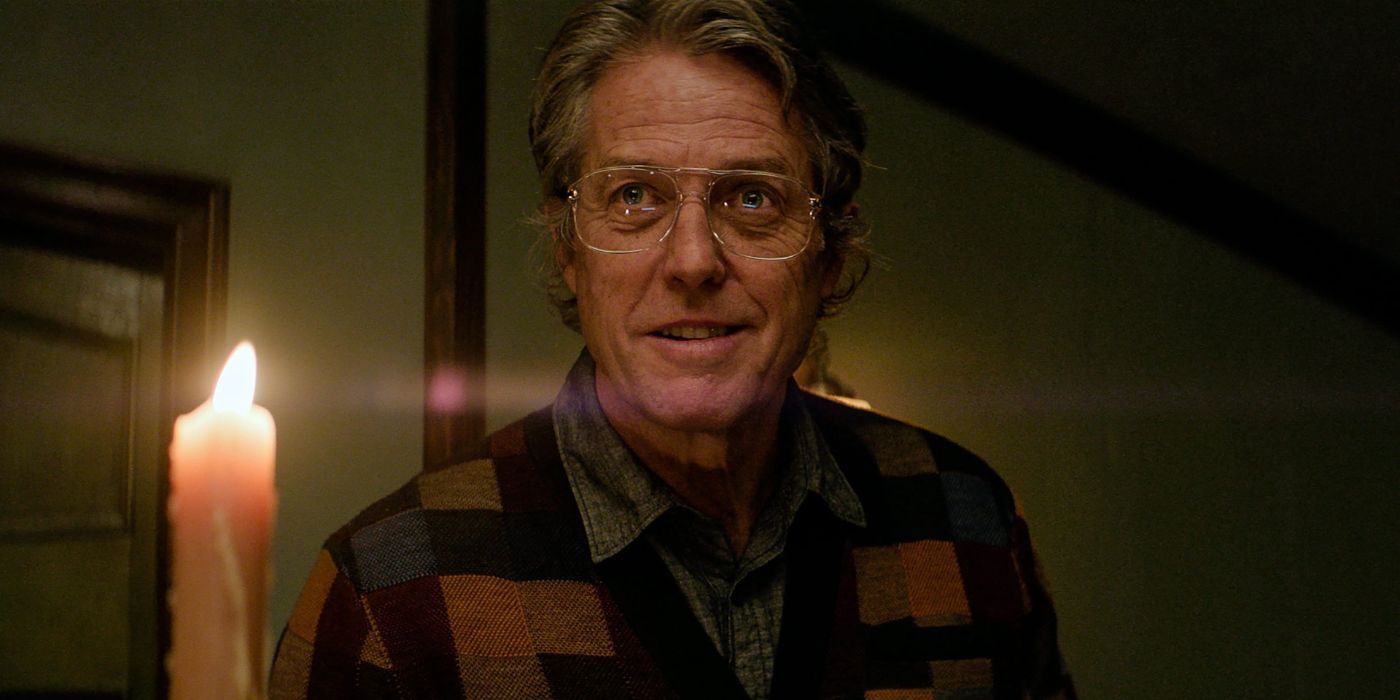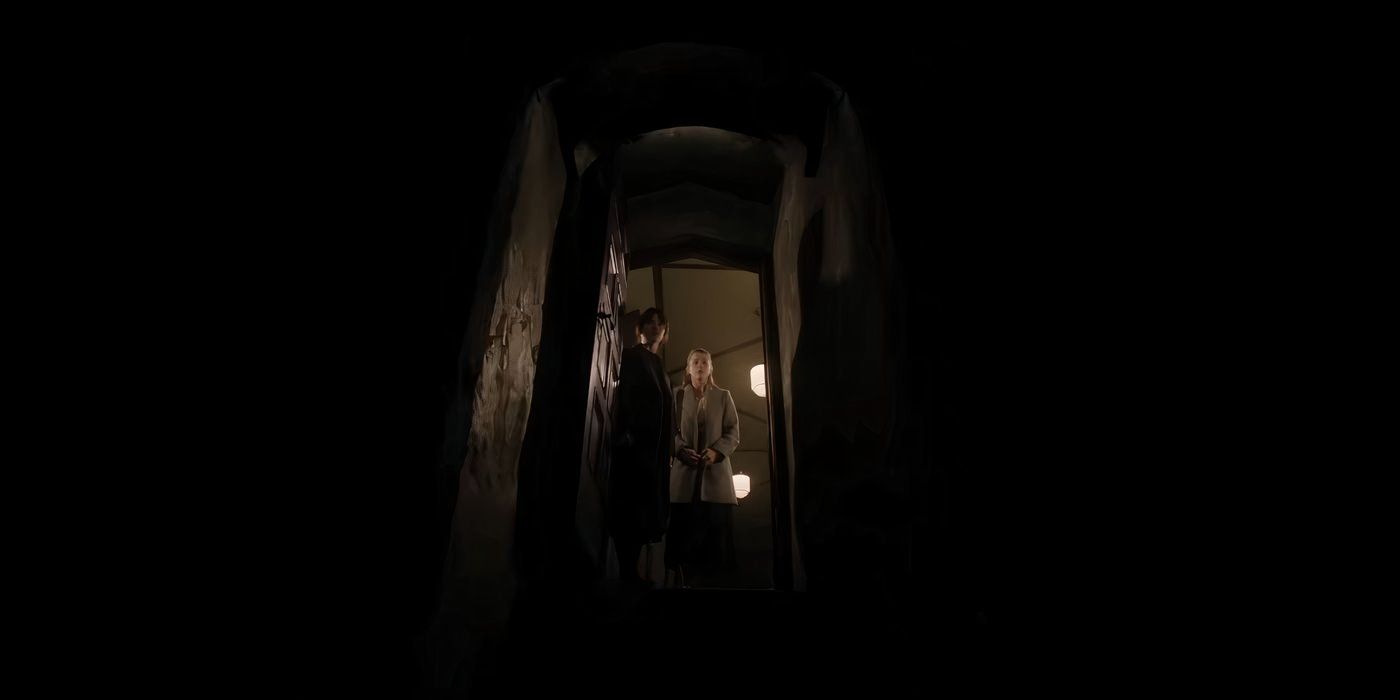
‘Heretic’ Review: Hugh Grant Delivers Dark Twist in Horror
When exploring the realm of religious horror films, many entries often tread familiar ground, focusing on themes like demon possession, evil antichrist babies, and the devil’s manipulation of human actions. However, a unique perspective is rarely seen—one that delves into the profound fear of faith, the uncertainty of trusting in potentially false beliefs, and the inner turmoil that arises from a crisis of faith. The latest film from the talented writer-director duo, Scott Beck and Bryan Woods—known for their work on films like A Quiet Place and Haunt—is titled Heretic. This notable entry stands apart in the genre by emphasizing religious themes over typical horror elements, making it a refreshing addition to the A24 film collection.
Unveiling the Plot of ‘Heretic’
Sophie Thatcher and Chloe East take on the roles of Sister Barnes and Sister Paxton, two dedicated missionaries representing The Church of Jesus Christ of Latter-day Saints. Their mission revolves around spreading the teachings of the Mormon church, hoping to reach those willing to listen. Unfortunately, their efforts have largely been met with indifference, leaving them feeling somewhat disheartened as they seek individuals open to their message. However, they receive an unexpected response from a certain Mr. Reed (Hugh Grant), who expresses a genuine interest in learning more about their faith. This prompts the two missionaries to visit his home with the intention of sharing the gospel.
Upon their arrival, Mr. Reed appears open and welcoming, inviting the young missionaries into his home. He introduces them to his wife, who, as it turns out, is engaged in the delightful task of baking a blueberry pie. Through this initial interaction, a discussion about the tenets of the Mormon faith unfolds, revealing Mr. Reed’s own quest for the one true religion. However, once Mr. Reed leaves Sister Barnes and Sister Paxton alone, an unsettling atmosphere begins to take shape. They start to question their presence in his home, especially when they realize that there seems to be no Mrs. Reed and that they are mysteriously locked inside. As they explore Mr. Reed’s house in search of a way out, they must confront their beliefs and ultimately decide if they will exit this strange abode with the same convictions they entered with.
The Religious Dynamics Explored in ‘Heretic’
Rather than relying heavily on horror tropes, Beck and Woods delve into the profound religious questions that permeate Heretic. While the film may occasionally resemble a basic introduction to faith seminar, it cleverly critiques the hypocrisies often inherent within strict belief systems. Instead of merely aiming to scare viewers with typical jump scares or unsettling imagery, Heretic seeks to provoke thought among those holding rigid views about the “one true religion.” The creators do not merely critique organized religion; they challenge the notion held by some that they possess exclusive access to ultimate truths that others cannot grasp. Mr. Reed engages Sister Barnes and Sister Paxton in discussions that reveal his perceived superiority and understanding of faith, yet the film artfully reveals the flaws and contradictions within his own beliefs.
Hugh Grant’s portrayal of Mr. Reed is a standout in the film, delivering a performance that is both captivating and unsettling. Grant has excelled in villainous roles recently, showcasing his range in films like Paddington 2 and Dungeons & Dragons: Honor Among Thieves. In Heretic, he adds to this impressive repertoire. Grant’s character thrives on dismantling the faith of Sister Barnes and Sister Paxton, illuminating the inconsistencies within their beliefs while engaging in a spirited debate about religious ideologies. The film truly shines when it allows Grant to unleash lengthy monologues, where he adeptly employs metaphors like Monopoly to explore the nature of religion, hums Radiohead songs, and even channels a quirky Jar Jar Binks impression. His performance encapsulates the essence of a charismatic yet menacing villain.

Related
The 6 Things You Need to Know About Hugh Grant’s Unholy New Role in ‘Heretic’
How can such a charming Brit turn so sinister?
Joining Grant’s character on the pro-religion side of the narrative are Thatcher and East, who effectively embody their roles while navigating the complexities of their faith amid the unsettling circumstances presented to them. Beck and Woods’ screenplay artfully guides the audience through the development of these characters, frequently leading us to anticipate their actions while simultaneously defying those expectations as the story progresses. Sister Barnes, portrayed by Thatcher, is introduced as a more recent convert, while Sister Paxton, played by East, embodies a more unwavering commitment to her teachings. The film masterfully allows Thatcher to match Grant’s formidable arguments, while East’s character undergoes an unexpected transformation that catches viewers off guard. The film carefully develops Sister Paxton, making her a delightful surprise as the narrative deepens, showcasing how she maintains her beliefs against the backdrop of uncertainty.
The Narrative Structure of ‘Heretic’: A Tension Build-Up
Regrettably, as the plot of Heretic progresses deeper into Mr. Reed’s home, the narrative begins to lose its coherence. In the initial stages, the film effectively centers around a compelling conflict of faiths, skillfully driven by Grant’s riveting performance and the film’s straightforward direction. However, as the story ventures into the more sinister aspects of this house, it gradually becomes less engaging. This shift occurs partly because Mr. Reed’s character fades from the spotlight, and the screenplay starts to wander into more concrete answers and miraculous concepts. What initially captivated viewers through deep discussions gives way to more absurd notions and questionable portrayals of faith. Visually, the film’s aesthetic also suffers; the cozy, inviting ambiance of Mr. Reed’s home gives way to dark, poorly lit settings. The cinematography by Chung Chung-hoon, known for his work on Wonka and Last Night in Soho, shifts towards a more typical horror style, diminishing the film’s impact as it strays from its thought-provoking dialogue and veers into less compelling territory.
Heretic represents an innovative take on the religious horror genre, featuring three compelling performances, particularly that of Grant as the charming yet unsettling Mr. Reed. Although the film stumbles in its final act, it nonetheless offers a fresh perspective on the hypocrisies of organized religion, exploring themes that are infrequently addressed in mainstream cinema. Moreover, Grant’s ability to channel humor into his character adds a unique layer to the film, making it a memorable experience for audiences.




